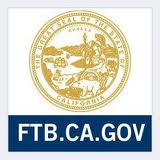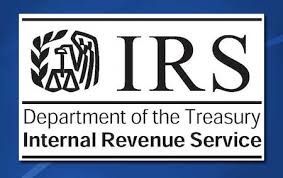 Organizations That Qualify To Receive Deductible Contributions
Organizations That Qualify To Receive Deductible Contributions
Many of us have our favorite charities that we know and have contributed to in the past. However, not every charitable contribution is deductible – specifically – those contributions made to individuals.
Please refer to the IRS Publication 526 to get filing guidelines for tax year 2013. They cover just about everything and include: Organizations That Qualify To Receive Deductible Contributions, Contributions You Can Deduct, Contributions You Cannot Deduct, Contributions of Property, When To Deduct, Limits on Deductions, Records To Keep, and How To Report.
A few posts back we discussed charitable contributions in Part I and Part II on Substantiating Tax Deductions for Charitable Contributions. According to the IRS, for 2013, you may have to reduce the total amount of certain itemized deductions, including charitable contributions, if your adjusted gross income is more than:
They also discuss Disaster relief.
“You can deduct contributions for flood relief, hurricane relief, or other disaster relief to a qualified organization (defined under Contributions) Organizations That Qualify To Receive Deductible . However, you cannot deduct contributions earmarked for relief of a particular individual or family.”
How to check whether an organization can receive deductible charitable contributions. You can ask any organization whether it is a qualified organization, and most will be able to tell you. Or go to IRS.gov. Click on “Tools” and then on “Exempt Organizations Select Check” (www.irs.gov/Charities&NonProfits/ExemptOrganizationsSelectCheck).
This online tool will enable you to search for qualified organizations. You can also call the IRS to find out if an organization is qualified. Call 1-877-829-5500. People who are deaf, hard of hearing, or have a speech disability and who have access to TTY/TDD equipment can call 1-800-829-4059. Deaf or hard of hearing individuals can also contact the IRS through relay services such as the Federal Relay Service at www.gsa.gov/fedrelay.
The IRS has a tool that you can use to check charitable organizations. http://www.irs.gov/Charities-&-Non-Profits/Exempt-Organizations-Select-Check
Pat Michael and his team at US-TaxLaws is your best source for professional tax preparation services with more than 30 years experience and thousands of satisfied clients.
Personal Tax Preparation Business Tax Preparation Partnership Tax Preparation Corporate Tax Preparation Incorporation-Choice of Entity Business Support Services Corporate Compliance Audit Representation Retirement Tax Planning Wills & Trusts Estate Planning Bookkeeping Payroll
https://us-taxlaws.com/wp-content/uploads/2014/03/IRS-Publicatim-526-Charitable-Contributions.pdf

 Organizations That Qualify To Receive Deductible Contributions
Organizations That Qualify To Receive Deductible Contributions Seven significant new income tax law changes went into effect at the beginning of the year as a result of two pieces of legislation:
Seven significant new income tax law changes went into effect at the beginning of the year as a result of two pieces of legislation: Federal changed the allowable medical and dental expense deduction amount for federal purposes. A deduction is allowed for unreimbursed allowable medical and dental expenses that exceed 10 percent of federal adjusted gross income (AGI) California allows a deduction for medical and dental expenses that exceed 7.5 percent of federal AGI. For more information, go to
Federal changed the allowable medical and dental expense deduction amount for federal purposes. A deduction is allowed for unreimbursed allowable medical and dental expenses that exceed 10 percent of federal adjusted gross income (AGI) California allows a deduction for medical and dental expenses that exceed 7.5 percent of federal AGI. For more information, go to 
 The budget deal that Congress and President Obama struck at the beginning of the year to avoid the fiscal cliff resulted in seven tax increases. If you throw in the six tax hikes that are part of Obamacare, that means there are 13 new taxes that may have hit you in 2013.
The budget deal that Congress and President Obama struck at the beginning of the year to avoid the fiscal cliff resulted in seven tax increases. If you throw in the six tax hikes that are part of Obamacare, that means there are 13 new taxes that may have hit you in 2013.
 IF YOU WANT TO GET CREDIT FOR CHILD and DEPENDENT CARE, THE IRS NEEDS TO KNOW…
IF YOU WANT TO GET CREDIT FOR CHILD and DEPENDENT CARE, THE IRS NEEDS TO KNOW…  TAX MOVES TO MAKE BEFORE CHRISTMAS.
TAX MOVES TO MAKE BEFORE CHRISTMAS. Questions and Answers: 2013 Changes to the Itemized Deduction for Medical Expenses
Questions and Answers: 2013 Changes to the Itemized Deduction for Medical Expenses